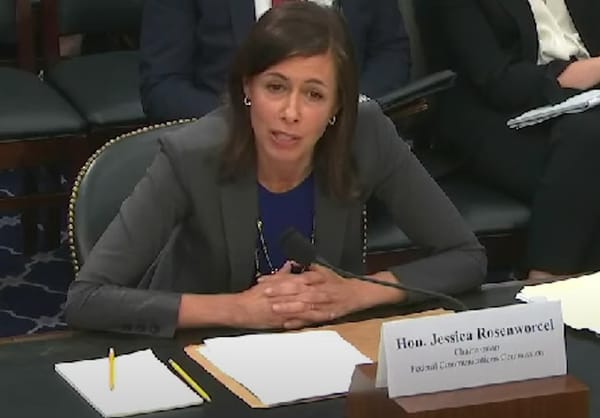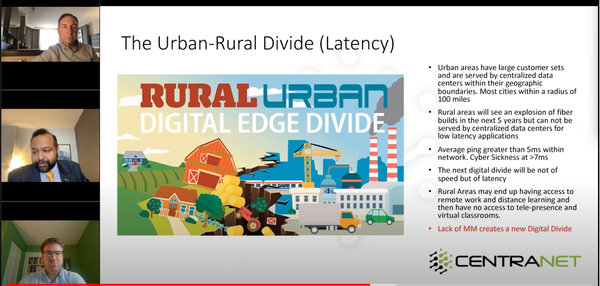12 Days: For State Broadband Offices, 2023 Was All About BEAD
All 56 states and territories have released for comment their Broadband Equity, Access and Deployment proposals.

December 26, 2023 – The Infrastructure, Investment and Jobs Act’s landmark $42.5 billion broadband expansion effort was front and center in the broadband world in 2023.
The Broadband Equity, Access and Deployment program got closer to breaking ground as maps were finalized, allocations were made, and states got to work
drafting and refining their proposals for implementing the program.
- On the Fifth Day of Broadband, my true love sent to me:
56 States and Territorial Broadband Offices Implementing BEAD
4.8 Million Challenges to Broadband Coverage Data
$3.6 Billion Funds Remaining in the Affordable Connectivity Program
24 Reverse-Preemption Pole Attachment States (2023 edition)
And One Artificial General Intelligence
Mapping was a central concern early in the year, as states pushed the Federal Communications Commission for more time to contest its coverage data. The commission had released the initial version of its broadband map in November 2022, and the updated version would be used by the National Telecommunications and Information Administration to determine relative need among states and territories and make final BEAD allocations.
The commission ultimately held to its January 13 deadline and unveiled the second version of its map in May.
Based on the data in that map, the NTIA made its BEAD allocations the next month. Texas saw the largest, at over $3.3 billion, with California taking home $1.8 billion. Missouri, Michigan, and North Carolina each received more than $1.5 billion and 14 other states were slated to get more than $1 billion to fund new broadband infrastructure.
All plans are due by December 27
That kicked off the planning phase. States have to get their proposals for administering BEAD funds approved by the NTIA. Those plans are due December 27, but some states have got theirs in early, with Louisiana and Virginia leading the pack.
As states worked to get their proposals together, the NTIA issued two important waivers for the BEAD program: one for the Infrastructure Act’s Buy America requirements and one for the original BEAD financing requirements.
The Build America, Buy America, or BABA, provision of the Infrastructure Act requires federally funded projects to spend 55 percent of their component costs with American suppliers and to manufacture materials in the United States.
That raised flags among the broadband industry, as deploying the fiber-optic cable favored by BEAD involves equipment full of semiconductors only manufactured at scale in Southeast Asia.
The NTIA released in August a proposed waiver for BEAD participants, releasing them from BABA requirements for all electronics and from the 55 percent component cost requirement for certain pieces of fiber equipment.
The waiver gives potential BEAD participants more breathing room and makes meeting BABA requirements feasible, Nokia’s Vice President of Broadband Policy Lori Adams said at a Broadband Breakfast event. The company announced a major manufacturing plant in Wisconsin for the fiber equipment that still needs to be American-made under the waiver, which it plans to get operational in 2024.
Alan Davidson, the agency’s administrator, testified at a December House oversight hearing that the finalized waiver will be coming in “weeks, not months.”
Changes to the Letter of Credit requirements
The NTIA also issued in November a waiver to its letter of credit requirements. The agency’s original rules had mandated that BEAD grant recipients get a letter of credit from an accredited bank for 25 percent of total project costs. That involves putting up an equal amount of cash as collateral, which advocates and broadband providers warned was too restrictive and would prevent small companies from participating.
After months of pressure, the NTIA listened. Its November waiver opens the door for states to use a variety of other means to ensure the financial viability of projects, including performance bonds, which providers only pay out if the project fails, and completion milestones to lower the LOC as infrastructure is deployed and free up more money.
The first – and so far the only – state to have its full BEAD proposal approved by the agency was Louisiana. The NTIA greenlighted the first volume of the proposal, which outlines plans to accept and process challenges to government broadband coverage data, in September and approved the second volume, which details the state’s plan to award grants under the program, on December 15.
That gives the state one year to accept grant applications and make their selections before submitting a final proposal to the agency.
Two others, Virginia and Kansas, have received approval on their volume ones, allowing them to follow Louisiana’s lead and start accepting broadband data challenges.
Several others have submitted their plans and are awaiting approval. Just as with the proposal process, they will likely be looking to Louisiana for lessons on implementing the BEAD program.
See “The Twelve Days of Broadband” on Broadband Breakfast

- On the First Day of Broadband, my true love sent to me:
One Artificial General Intelligence - On the Second Day of Broadband, my true love sent to me:
24 Reverse-Preemption Pole Attachment States (2023 edition)
And One Artificial General Intelligence - On the Third Day of Broadband, my true love sent to me:
$3.6 Billion Funds Remaining in the Affordable Connectivity Program
24 Reverse-Preemption Pole Attachment States (2023 edition)
And One Artificial General Intelligence - On the Fourth Day of Broadband, my true love sent to me:
4.8 Million Challenges to Broadband Coverage Data
$3.6 Billion Funds Remaining in the Affordable Connectivity Program
24 Reverse-Preemption Pole Attachment States (2023 edition)
And One Artificial General Intelligence - On the Fifth Day of Broadband, my true love sent to me:
56 States and Territorial Broadband Offices Implementing BEAD
4.8 Million Challenges to Broadband Coverage Data
$3.6 Billion Funds Remaining in the Affordable Connectivity Program
24 Reverse-Preemption Pole Attachment States (2023 edition)
And One Artificial General Intelligence








